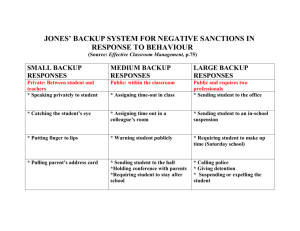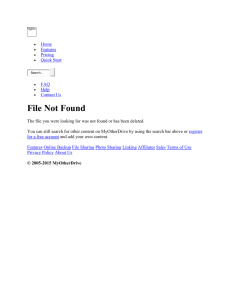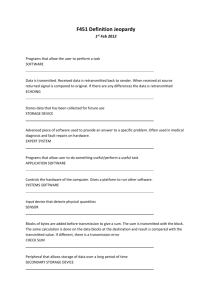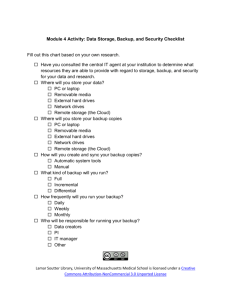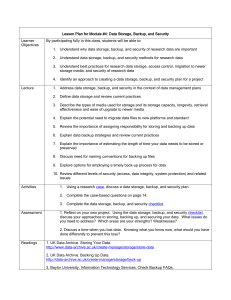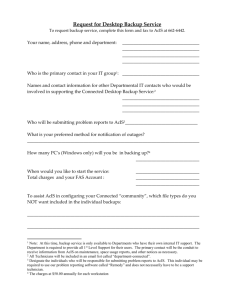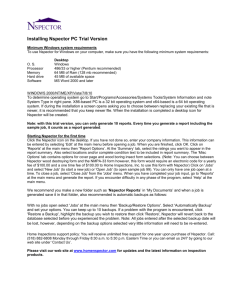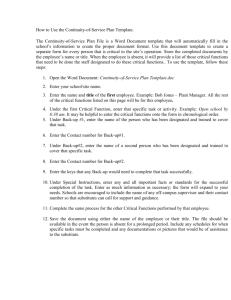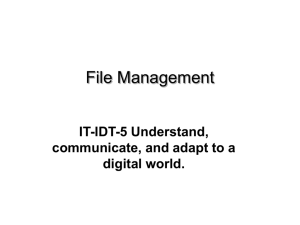2. Types of Database Failures
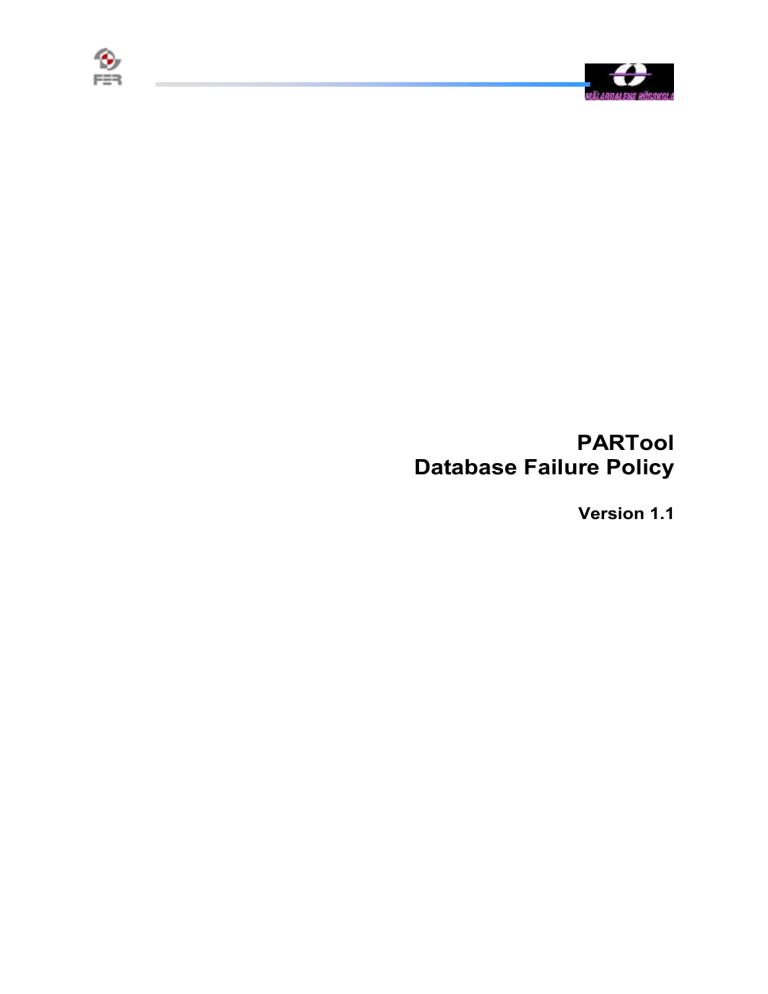
PARTool
Database Failure Policy
Version 1.1
PARTool
Database failure Policy
11/28/11
11/29/11
Date
1.
Introduction
2.
Types of failure
3.
Prevention steps
4.
Recovery Plan
5.
Summary
Revision History
Version
1.0
1.1
First Version
Second Version
Description
Table of Contents
Version: 1.1
Date: 2011-11-29
Author
Ejaz Asghar Ali
Ejaz Asghar Ali
Page 2
PARTool
Database failure Policy
1. Introduction
Version: 1.1
Date: 2011-11-29
1.1 Purpose of this document
The purpose of this document is to give overview of database failure policy. It includes steps need to be taken to prevent database failure from happening, recovery plan if it happens. One of the main part in software development is database. All project members have access to a shared database. All team members will have to follow the given guidelines and rules to reduce database failure and have a defined way of resolving them.
1.2 Document organization
The document is organized as follows:
Section 1,
Section 2, failure occur
Types of failure, short introduction to the types of database failure prevention Steps, list of guidelines and rules to follow to avoid failure or when
1.3 Intended Audience
The intended audience is:
PARTool project members
PARTool project supervisor
1.4 Scope
Scope of this document is for the PARTool project. All project members will follow database failure policy defined in this document.
1.5 Definitions and acronyms
1.5.1 Definitions
MVC
Keyword
Model view controller, used as web development framework
1.5.2 Acronyms and abbreviations
Acronym or abbreviation
1.6
Definitions
Definitions
References
[1.] Failure types http://online.cit.edu.au/toolboxes/database_admin/tb/content/backup/failure_types.htm
Page 3
PARTool
Database failure Policy
Version: 1.1
Date: 2011-11-29
2. Types of Database Failures
Database is core component of Software Development. Database failure is Show stopper in Web application. Due to its critical nature, prevention of failure is essential. Moreover contingency plan is required.
For Prevention of database failure, it is required to document all types of failure that can occur.
Following are types of failure that can occur.
2.1 System Failure
2.2
System failure can occur with Operating system failure. Operating System failure eventually results in
Database failure. It is, therefore, essential that Operating system failure is prevented.
Media Failure
2.3
Failure of Hard disk can also cause database failure. Out of memory error can also result in database failure. Out of disk space can also result in database failure.
Database, tables or data deletion through Model of MVC
Database drop, tables deletion or data deletion could occur through model of MVC.
3. Prevention
Database failure is not an option. To avoid database failure we need to make prevention steps.
Following are recommendation available for prevention of database failure.
3.1 Read only access
As our project scope doesn't require data write access. Data insert/update and delete operation is not required. Read only access to the database will be ensured through database user rights. In Code, as well, read only queries should be written.
3.2 Backup script to be prepared by db in-charge
DB In-charge will create a script to take incremental and/full backup and another separate script to restore db in case of crash.
3.3 Data-types
Data-types should be same in classes and database. To avoid conflict and problem in data through
MVC framework keep field-names and tables name should be used as same as in database.
Page 4
PARTool
Database failure Policy
3.4 Backup strategies
Version: 1.1
Date: 2011-11-29
3.4.1 Plan backup of data. Planning backup includes reviewing database details, tables details, overall schema, Project requirement regarding data availability and resource planning and availability.
3.4.2 Plan backup technique (incremental or full). Incremental database backup can be used for short period availability, while full backups are taken over longer time period.
3.4.3 Decide occurrence of backup (daily, weekly, monthly). Daily backups can use full to mitigate data loss in case of database failure.
3.4.4 Write script for backup and restore.
4. Summary
Database is vital component of Software. Database failure is show stopper for project. It is highly recommended that preventive steps be taken to avoid such circumstances. In case, it occurs that contingency steps be taken to restore it.
Page 5
